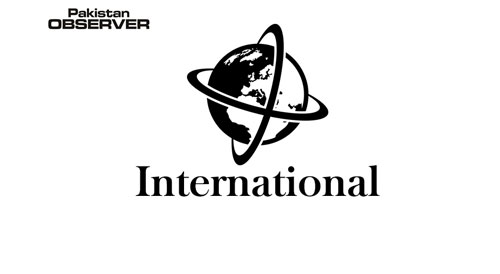Beijing
China decided Monday to postpone its annual parliament session for the first time since the Cultural Revolution, as the country battles the coronavirus outbreak.
Top Communist Party leaders including President Xi Jinping attend each year’s gathering of the National People’s Congress, which rubber-stamps bills, budgets and personnel moves already decided by the party.
But much of China has ground to a halt in the battle against an outbreak that has infected nearly 80,000 people and claimed more than 2,500 lives. The NPC’s Standing Committee met Monday and decided it was ‘appropriate to postpone’ the parliament, which was due to start on March 5, according to state broadcaster CCTV. It will decide later on a new date.
For many top officials who would normally attend the meeting, tackling the virus in their home regions has been made a priority. And Beijing has imposed quarantine measures on those arriving from other parts of China, a practical challenge for a gathering of nearly 3,000 delegates.
Holding the event would have meant bad optics with China’s leaders arriving in face masks for a meeting that is highly stage-managed to present the image of a Communist Party in perfect control of the country. Ling Li, a lecturer on Chinese politics at the University of Vienna, said in advance of the announcement that maintaining the NPC conference next month would be ‘unreasonable.’
‘(It would) signal a desperate effort of the authorities to keep up the appearance of political normality, which is not there,’ she said. At the same meeting officials declared an immediate and ‘comprehensive’ ban on the trade and consumption of wild animals, a practice believed responsible for the coronavirus outbreak.
At least half a dozen countries have banned the entry of visitors travelling from South Korea, with nine others tightening travel restrictions for the Asian nation, after Seoul reported a sudden spike in new coronavirus infections last week. South Korea has seen the number of confirmed coronavirus cases spike sharply from 30 on Feb. 17 to 763 cases and seven deaths as of Monday morning. Of the total, more than 60 percent of the patients were found to be members of a church in the country’s southeastern city of Daegu.
Israel was one of the first to ban visitors from South Korea from entering the country. Five other countries — Bahrain, Jordan, Kiribati, Samoa and American Samoa — have also slapped an entry ban on those from South Korea. Israel said it will bar South Koreans and travelers who have been in the country in the past two weeks from entering its territory starting Monday. But even before the announcement, Israel forced back a Korean Air flight carrying some 180 passengers, including 130 Koreans, when it landed in Tel Aviv on Saturday.
Israel cited increased concern following reports that some South Koreans who made a group pilgrimage to Israel were later confirmed to have contracted the virus. South Korea has voiced regret over the decision.
Israel has also imposed entry bans on those with a record of visits to Japan, China, Hong Kong, Macao, Thailand and Singapore. Bahrain has also barred South Koreans and those who have been in countries exposed to the virus in the past 14 days from entering the country. South Korean nationals with residential permits are still allowed entry, but they need to undergo tougher quarantine checks.
Samoa requires entrants from South Korea, China, Japan and Singapore to submit documentation showing they went through a self-quarantine for at least two weeks. American Samoa has taken a similar measure, requiring visitors from those countries to be quarantined in Hawaii for 14 days.
Brunei, Britain, Turkmenistan, Kazakhstan, Ethiopia and Uganda have tightened monitoring of travelers from Korea and other virus-hit countries, and they require entrants to voluntarily notify health authorities if they show any symptoms. Travelers entering Oman from South Korea, China, Iran and Singapore must be put under isolation for 14 days. Macao has classified Korea as a high-risk country for the virus and been conducting separate quarantine checks on visitors from South Korea at a designated facility. Qatar also requires visitors from South Korea to be placed under self-quarantine or isolation at a facility for 14 days.
Mauritius, an island nation off Africa’s east coast, has yet to officially announce an entry ban on South Koreans. But on Sunday it suspended the entry of 34 Korean tourists — some with signs of cold — and transported them to a hospital for diagnosis, a foreign ministry official said.
The country is expected to make a final decision over entry restrictions after a Cabinet meeting on Monday, the official said. ‘Our government lodged a protest over Mauritius’s move to suspend the entry of Koreans without prior consultations, expressed regrets and urged a prompt resolution of the issue,’ the official said.
The tightened measures come after the United States on Saturday raised its travel advisory for South Korea by one notch to Level 2, which calls for exercising ‘increased caution’ from ‘normal precautions.’ Taiwan has also raised its travel alert for Korea. Britain and Singapore have advised their citizens to avoid non-essential travel to South Korea’s Daegu and North Gyeongsang Province, the regions responsible for the latest surge in virus infections.
China’s “incredibly difficult measures” in tackling the coronavirus that emerged late last year has probably prevented hundreds of thousands of cases in the country.—Agencies










